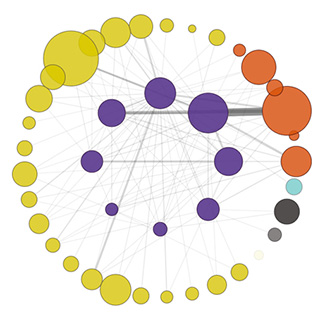Leadership is more than being the boss. It’s asking the right questions, working as part of the team, and creating a framework for success that inspires and mobilizes those around you.
At Northwestern Engineering, we provide students with the resources needed to prepare personally and professionally for the person they want to be, and we offer a unique assessment tool that helps students understand how their teamwork and leadership abilities can be improved.
Center for Leadership
The Center for Leadership offers opportunities for all students to improve their skills through an environment that nurtures experimentation and innovation. Northwestern is one of only a few academic institutions that boasts a University-wide research center dedicated to the study of leadership and dissemination of the latest and best practices.
Personal Development StudioLab
The Personal Development StudioLab empowers students to take ownership of their learning and personal growth. Courses, opportunities, resources, and experiences form the basis of the program, supporting students in igniting their curiosity and unlocking The Big Three C's: calm, clarity, and compassion. The curriculum aims to help all students engage with the world in a unique, productive, and open way.
Education
Innovative Tools: The Leadership Portal
The Center for Leadership's Portal offers students the opportunity to learn about their leadership and teamwork abilities through two innovative tools: the 360° Leadership Assessment and the Teamwork Assessment.
The 360° Assessment is an evaluation that collects insights from professors, classmates, and others to help determine a student’s leadership strengths and weaknesses. In a subsequent coaching session, participants meet with program leaders to discuss the findings and explore pathways for growth. Grounded in principles of “authentic leadership,” programs like these teach students to develop their individual leadership style based on their own talents, rather than emulate a maverick CEO who’s perceived as today’s great leader.
Built from best industry practices and our proprietary research, the Teamwork Assessment identifies typical teamwork problems at the individual and group levels and provides a process for solving them.
Innovative Course: Engineering Improv
Engineering Improv: The Art of Allowing introduces Northwestern Engineering teaches undergraduates to use improvisational techniques, including developing sensory awareness, attention and focus, collaboration, trust and support, storytelling skills, and commitment to character. The course helps undergraduate students develop accurate self-awareness by creating an environment that encourages them to explore available opportunities and engage in new experiences.
Innovative Course: Emotional Intelligence 101
Emotional Intelligence 101: Managing Yourself, Maximizing Your Potential gives Northwestern students the tools they need to master their attention. By doing so, they manage stress and improve focus, self-awareness, and empathy for others. Based on the Bar-On Model of Emotional Intelligence, the course is divided into five topics: stress management, self-perception, self-expression, interpersonal relationships, and decision-making.

























